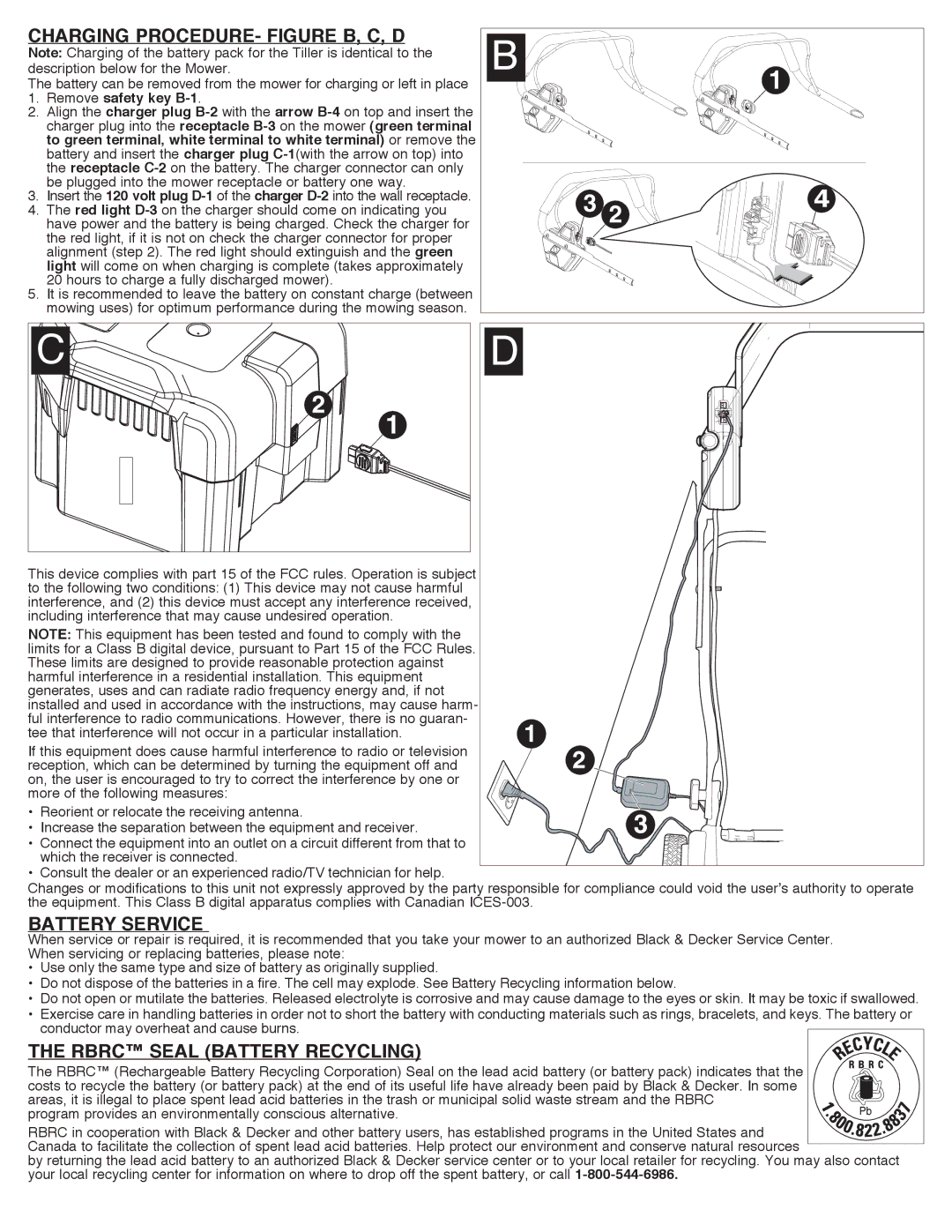RB-3612, RB-3675 specifications
Black & Decker, a well-known name in the world of power tools and home improvement equipment, offers a range of high-quality products that cater to both professional and DIY enthusiasts. Among its notable offerings are the RB-3612 and RB-3675 models, designed to enhance efficiency and performance in various tasks.The Black & Decker RB-3612 is a versatile and efficient power tool that stands out due to its lightweight design and ergonomic grip, making it easy to handle during extended use. This model features a robust 36V lithium-ion battery, providing a longer run time and quick recharge capabilities, ensuring that users can complete their tasks with minimal downtime. The RB-3612 boasts a high-performance motor that delivers consistent power, ideal for tackling tough materials or intricate details.
One of the standout technologies in the RB-3612 is its automatic torque adjustment feature. This technology allows the tool to adapt its power output based on the material being worked on, ensuring optimal performance without stalling or damaging the workpiece. Additionally, the RB-3612 is equipped with a built-in LED light that illuminates the workspace, enhancing visibility in dimly lit areas and allowing for precision work.
Moving on to the Black & Decker RB-3675, this model is designed for users seeking added functionality and versatility. Like the RB-3612, it features a powerful motor and a 36V lithium-ion battery. However, the RB-3675 includes advanced features such as a variable speed control function, enabling users to adjust the speed settings according to their specific task requirements. This makes it suitable for a wider range of applications, from delicate tasks requiring finesse to heavy-duty jobs demanding high power.
In terms of design, the RB-3675 is engineered with a composite frame that enhances durability while remaining lightweight, which is essential for job site flexibility. It also includes a safety grip, promoting better control and reducing the risk of accidents.
Both models incorporate Black & Decker’s intelligent battery management system, which monitors battery health and enhances overall longevity. With their blend of innovative technology and user-centric features, the Black & Decker RB-3612 and RB-3675 stand out as reliable choices for anyone looking to enhance their toolkit with strong, efficient, and user-friendly tools.

